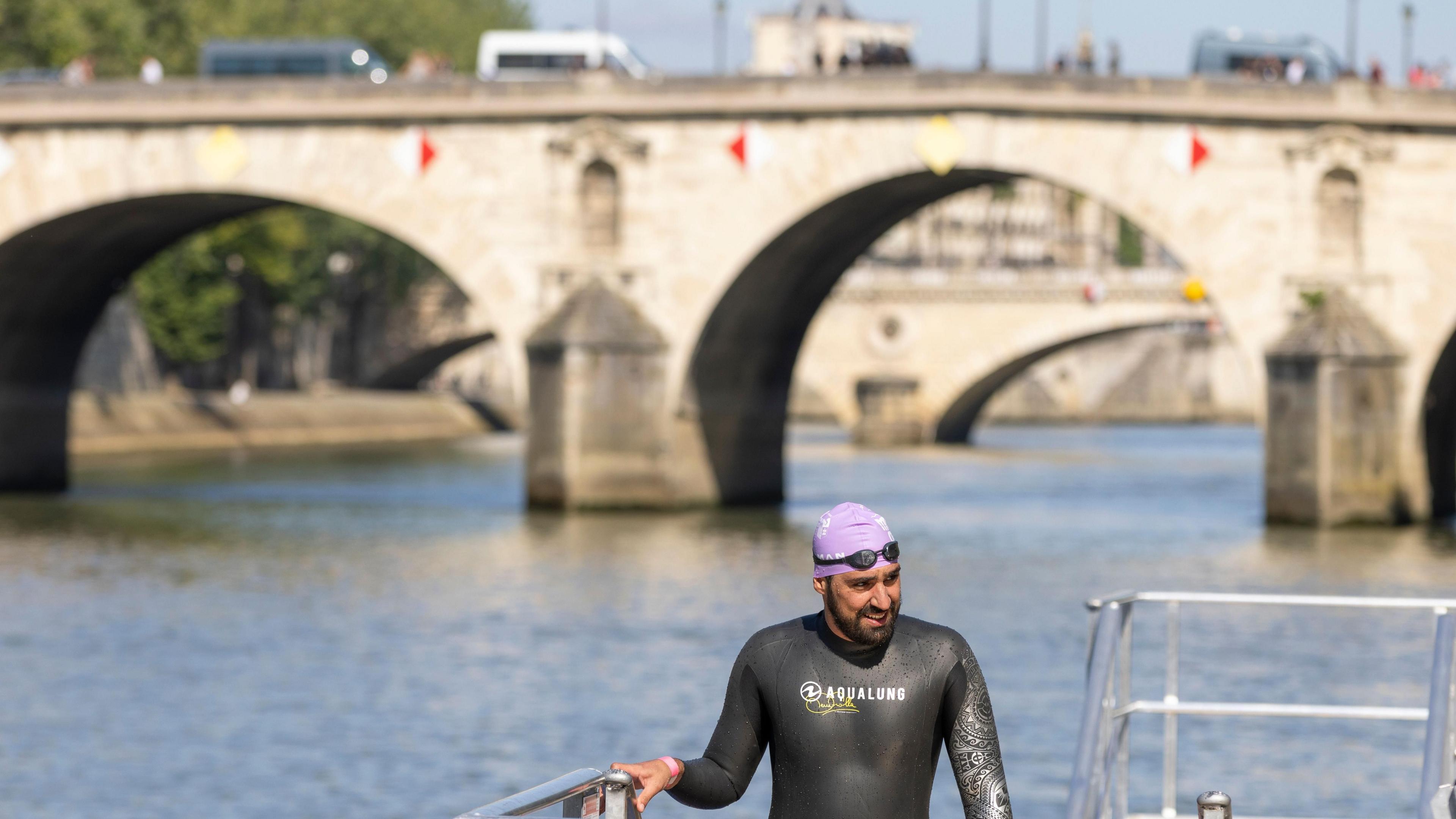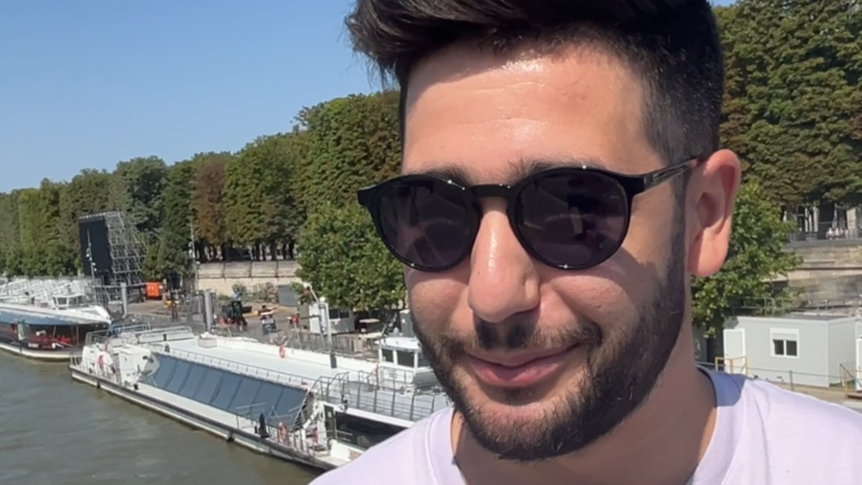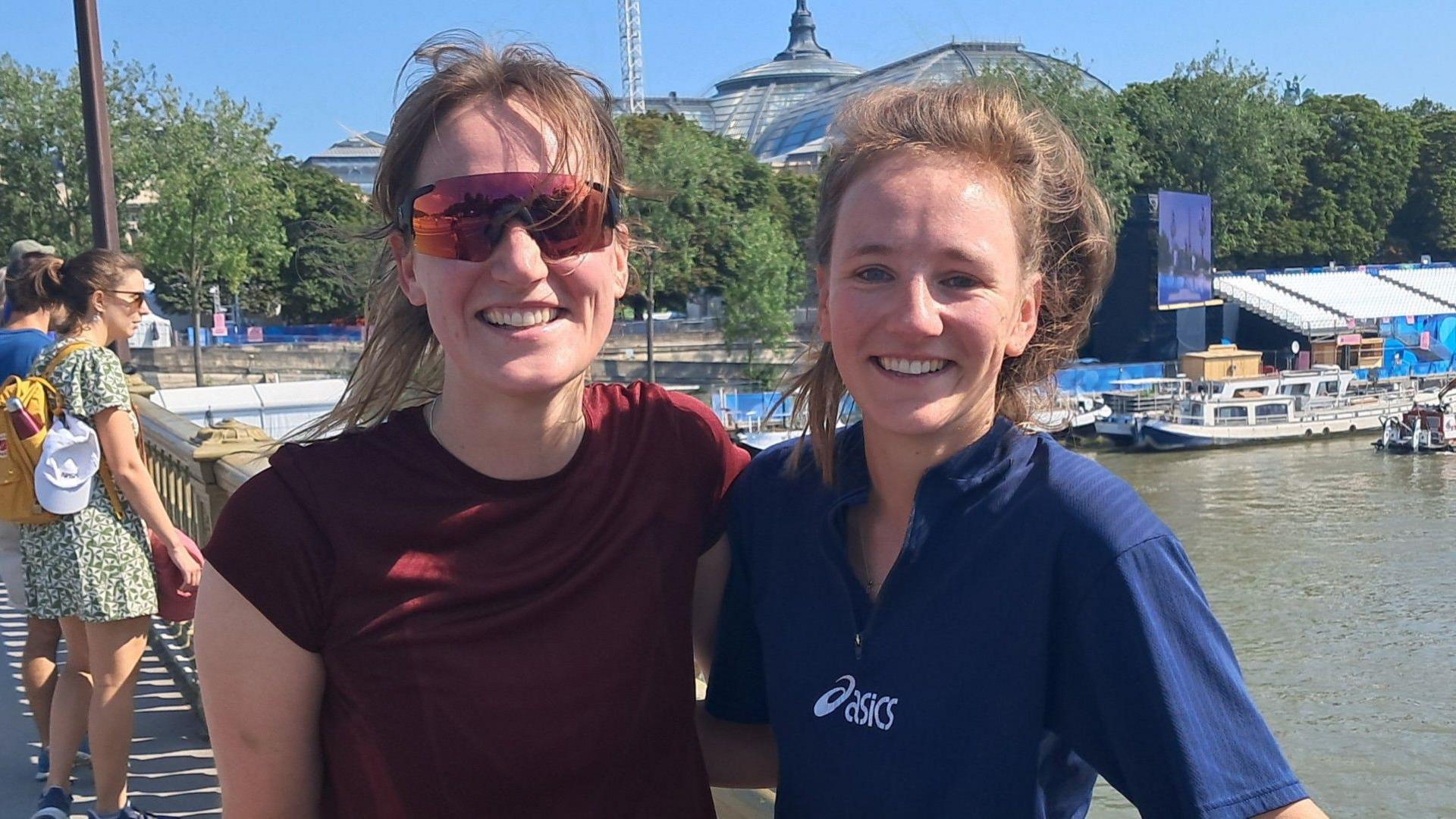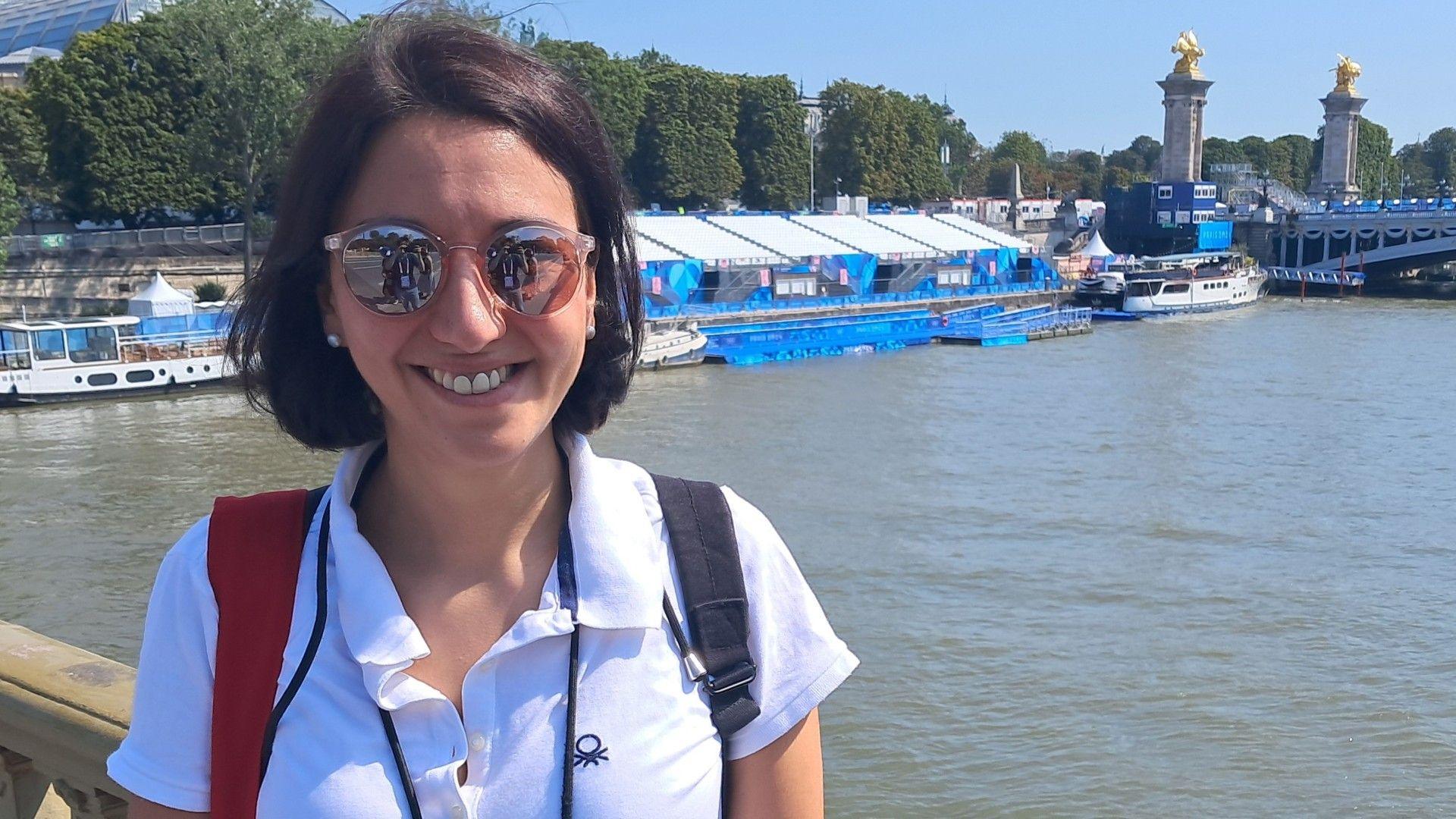What's the problem with swimming in the Seine?

- Published
It should be a stunning set piece of Paris 2024 - triathletes competing in the River Seine, bringing swimming back to the centre of this city. But concerns about water quality mean the first event has had to be postponed for a day.
Standing on the Pont des Invalides, slightly downstream of the planned starting line, locals and tourists spoke to me about whether they would be tempted to take a dip themselves.
“It's a beautiful river,” said Reda, a Parisian, as he surveyed the Seine glimmering below on a hot July day.
“But I will never dive in, even if they clean it for years."
The Seine has already played a starring role in the Games, having hosted thousands of athletes who took part in a boat parade in Friday night’s rain-soaked opening ceremony.
City swimming - which has been banned in the city for a century because of the water quality - is meant to be one of the major legacies of the Games, thanks to a major regeneration project.
As recently as Monday, organisers were saying they were confident the triathlon events would go ahead as planned. But the weekend's heavy rain has put paid to that.
Paris's "single system" drainage has become saturated, with excess water - from kitchens and toilets, as well as run-off from rain on the street - draining into the river.

Reda says he would never take a dip in the Seine
Paris mayor Anne Hidalgo recently took a swim in the Seine to highlight the efforts made to clean it up.
Previous tests had showed persistent levels of E.coli that broke the limits imposed of sports federations. This type of bacteria can cause illnesses including vomiting and diarrhoea.
The BBC’s Hugh Schofield was among those who joined Ms Hidalgo. He accidentally swallowed a mouthful of water in the process - but remarked that it tasted fine.
Many of the tourists I spoke to on the Invalides bridge spoke of the relative ease of open-water swimming at home.
Visitors from the UK, Germany, the Netherlands and the Czech Republic all said they had dived into their respective countries’ rivers, lakes and canals – and that they would do the same in the Seine if the evidence suggested it was safe.

Esmee, right, says the river does not look "that bad"
“I would go for it,” said Dutchwoman Esmee. “It doesn’t look that bad from here.”
France lags behind the European Union’s average score for top-quality bathing water conditions. About 75% of French bathing waters were rated “excellent” in 2023 compared with 85% across the bloc as a whole, according to the European Environment Agency, external (EEA).
Although it was safe to bathe in most of the EU’s bathing waters, coastal waters were generally better than rivers and lakes, the agency noted in its report published in May.
Cyprus topped the full table with 97.6% of its bathing waters being of excellent quality, followed by Austria at 96.9% and Croatia on 96.7%.
As the data just looks at the EU, the UK is not included. And whereas swimming is coming back to the Seine, currently only one stretch of the Thames - near Wallingford, Oxfordshire - is designated for bathing.
The EEA made specific reference to Paris’s €1.4bn (£1.1bn; $1.5bn) clean-up operation, which began 10 years ago.
As part of this, a vast rainwater storage basin has been created. This is capable of storing the equivalent of 20 Olympic swimming pools’ worth of water - all part of a mechanism to stop sewage flowing into the Seine during heavy rainfall.

Danielle says she's looking forward to a swim in her city's famous river
Not every visitor to the bridge on the eve of the men’s triathlon was fussed by the cleanliness issue, with some saying they would consider jumping into the river come what may – provided the weather was warm enough.
One man from Brazil said that was simply what he and his compatriots did.
“In my city, São Paulo, it's not clean either,” he admitted.
But a number of Parisians agreed that a clean and swimmable river would be an exciting part of the Olympic legacy.
Danielle, a university professor, said she would “absolutely” swim in the Seine.
“I have wanted to do it for a long time,” she said with a grin.
For one man named Damien, maintaining the cleanliness was “a big project”, but one worth pursuing.
“It's a good opportunity for all Parisians,” he said.
Testing of the water continues to be carried out daily.
Lambis Konstantinidis, operations director for Paris 2024, said there were several back-up plans in place, including the use of contingency days.
Downgrading the triathlons into duathlons - and scrapping the swimming entirely - would only be considered in a “really, really extreme case”, he told the BBC on Monday.
Additional reporting by Lauren Turner
